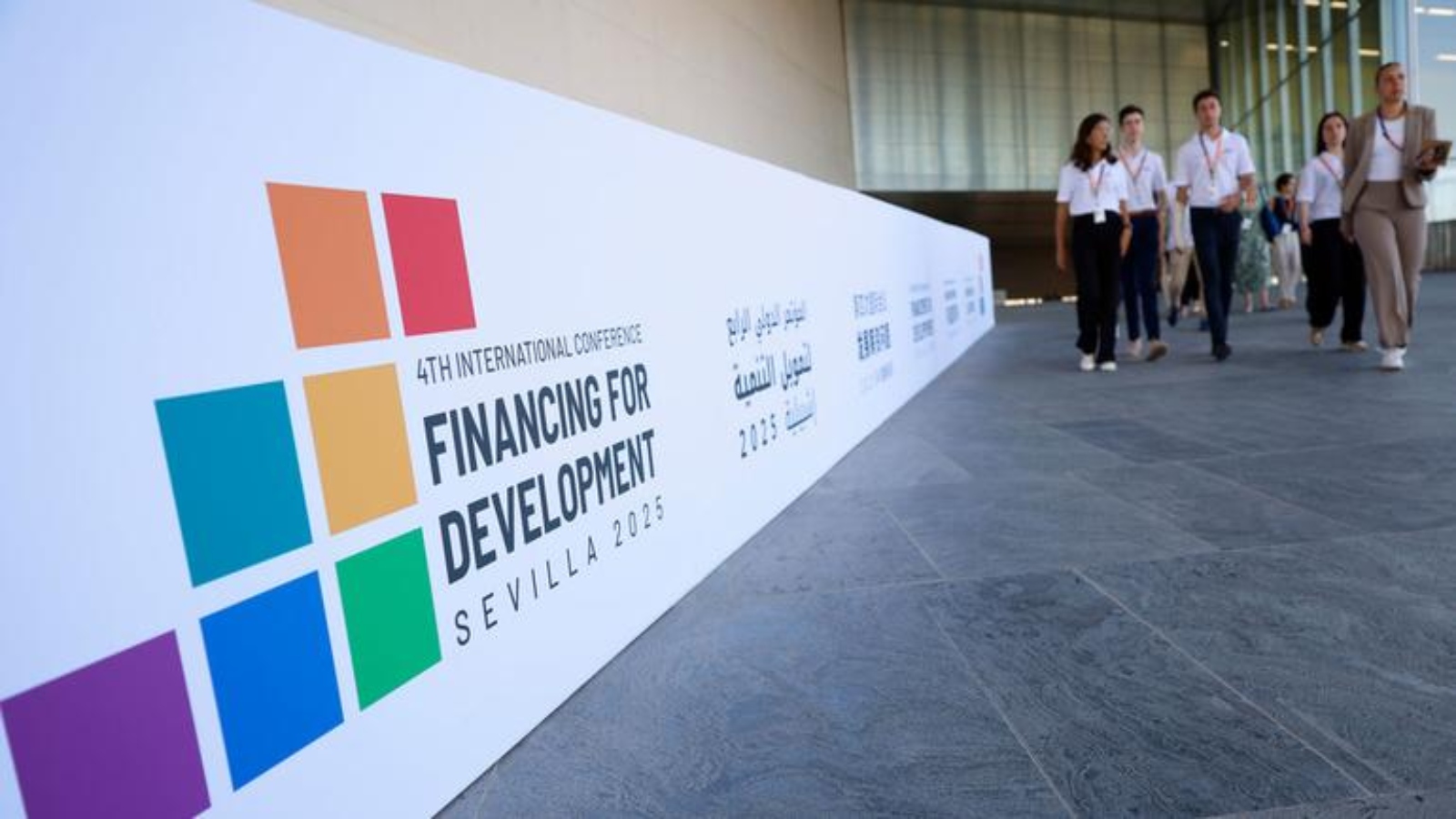
The landmark Financing for Development conference in Sevilla has concluded with a renewed sense of resolve and a focus on action that can change lives worldwide, according to UN Deputy Secretary-General Amina Mohammed.
“The human consequences of rising debt burdens, escalating trade tensions and steep cuts to official development assistance have been brought into sharp relief this week,” she told the closing session of the pivotal gathering, amid sizzling temperatures across southern Spain.
Multilateralism at work
But against that backdrop, the conference has delivered a strong response – a unifying outcome document focused on solutions that reaffirms the Addis Ababa commitments made a decade ago, which seeks to “rekindle the sense of hope” through the Sustainable Development Goals (SDGs) and shows that multilateral cooperation still matters and still works, Ms. Mohammed said.
She welcomed host nation Spain’s commitment to help launch a new UN Sevilla Forum on Debt, calling it a crucial step in helping countries better manage and coordinate debt restructuring efforts.
“Sevilla will be remembered not as a landing zone, but as a launchpad for action, to improve livelihoods across the world,” said Carlos Cuerpo, host Spain’s chief finance minister, at the closing press conference.
“Together, we have sent a strong message of commitment and trust in multilateralism that can yield tangible results to put sustainable development back on track.”
Li Junhua, UN Under-Secretary-General for Economic and Social Affairs and Secretary-General of the Conference said the week had proved the UN is “more than just a space for dialogue; it is a powerful platform for solutions that transform lives.”
“In Sevilla, we have demonstrated our collective will to confront the most urgent and complex financing challenges of our time,” the DESA chief underscored at the closing.
Concrete plan of action
Ms. Mohammed told the closing press conference delegates had made “a serious and long overdue attempt to confront the debt crisis” while aiming to close the massive financing gap for the 2030 Sustainable Development Goals (SDGs).
She reiterated the three main action areas for the Sevilla Commitment:
- A major investment push to close the SDG financing gap
- Concrete steps to address unsustainable debt burdens
- A greater voice for developing countries in global financial decision-making
Alongside this agreement, over 100 new initiatives were launched under the Sevilla Platform for Action. These include a global hub for debt swaps, a “debt pause” alliance, and a solidarity levy on private jets and first-class flights to fund climate and development goals.
“This platform has sparked new partnerships, innovative solutions that will deliver real change in people’s lives,” Ms. Mohammed said. “They’re not a substitute for broader funding commitments, but a sign that creative thinking is finally breaking through.”
Acknowledging criticism from civil society groups about limited access to official discussions, she pledged to push for greater inclusion. “We hear you,” she declared, adding that “this trust needs to be earned.”
Here’s a summary of key commitments going forward from Sevilla:
Tackling debt burdens:
- Spain and the World Bank will lead a Debt Swaps for Development Hub to scale up debt-for-development deals.
- Italy will convert €230 million in African debt into development investments.
- A Debt Pause Clause Alliance of countries and development banks will suspend debt payments during crises.
- The Sevilla Forum on Debt will help countries coordinate debt management and restructuring efforts.
Mobilising investment:
- A Global Solidarity Levies coalition will tax private jets and premium flights to raise climate and SDG funds.
- The SCALED platform will expand blended finance, backed by public and private partners.
- FX EDGE and Delta will help scale up local currency lending through risk management tools.
- Brazil and Spain will lead work on fairer taxation of the wealthy.
- New technical assistance hubs will support project preparation and delivery.
Strengthening financial systems:
- Country-led financing platforms will support national plans.
- The UK-Bridgetown coalition aims to expand disaster financing.
Private sector role:
At the International Business Forum, companies pledged to increase impact investment, with $10 billion in projects showcased.
Read more here: https://news.un.org/en/story/2025/07/1165281
Source: UN News
 Welcome to the United Nations
Welcome to the United Nations